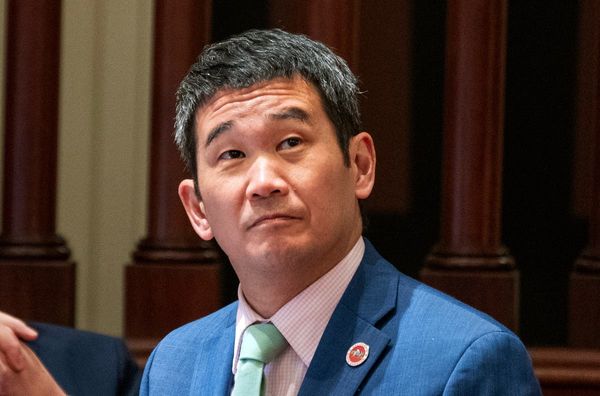
The role of gas in Australia's shift to renewable energy sources has been laid out by Climate Change Minister Chris Bowen.
In a speech to the Sydney Institute on Monday, Mr Bowen defended the government's contentious safeguard mechanism, which aims to cap emissions from the largest emitters.
Under the plan, companies that breach limits will be forced to buy carbon offsets or trade emissions with other companies.
But the proposal has been criticised by the Greens, who have offered their support - required by the government to pass the mechanism through parliament - in exchange for a ban on new coal and gas projects.
Mr Bowen said the safeguard reform was about reducing emissions from all facilities, be they old, new, industrial or resources based.
Without it, he said, the situation would be "business as usual".
"No reform means no change: it means emissions continuing to rise," he said.
The government has ruled out the Greens' request for no new coal and gas projects and Mr Bowen said this position was grounded in practicalities.
"Electrification will ramp up, renewable adoption will grow but there will still be a need for gas as a supporting fuel, especially for industrial and commercial users," he said.
"Gas is a flexible fuel necessary for peaking and firming as we undertake this transformation."
Meanwhile, a public policy think tank wants large private companies to report on climate risk alongside their public counterparts to stop climate-exposed businesses going private to dodge oversight.
The Centre for Policy Development, a key contributor to the debate on the economic risks posed by climate change, says large government entities, such as Australia Post and the Future Fund, should be forced to disclose.
The think tank has made the case for consistent, economy-wide rules on disclosing climate risks via a submission to Treasury's review into a standardised system for climate reporting.
The government's commitment to climate risk disclosure follows mounting pressure on companies to report on the risks climate change pose to their business.
Risks include the physical threat of changing weather patterns and how the low-carbon transition will affect business operations.
The submission also warned investors could try to take climate-exposed businesses private to avoid oversight under a two-tiered system.
The organisation recommended aligning with global standards and phasing in reporting requirements for select public authorities, large listed companies and other climate-exposed entities.







